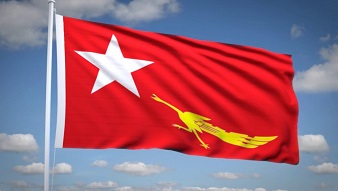Final poll numbers show the National League for Democracy clinching 396 seats in the Union Parliament, 138 in the Upper House (Amyotha Hluttaw) and 258 in the Lower House (Pyithu Hluttaw). It won six more seats than in 2015. The rival Union Solidarity and Development Party lost eight seats, leaving it with seven and 26 seats in the Upper and Lower houses, respectively.
Now that it has held the government, the NLD will go about appointing state and regional ministers and other local government officials. Unlike in 2015, this time State Counsellor Daw Aung Suu Kyi herself will take the lead in vetting and selecting these appointees, a party spokesperson told the Myanmar Times. Government at the state and region level has been a political liability for the NLD due to ineffective administrations or even corruption scandals. In Tanintharyi Region, its chief minister, Daw Lei Lei Maw, was sentenced to prison due to corruption. Although these scandals apparently had little effect on the 2020 election, the Union’s control over state and regional governments is a controversial issue, with some arguing that regions and especially ethnic states should elect their own chief ministers.
The balance of power between the NLD and ethnic minority blocs will doubtlessly continue to test Myanmar’s fledgling democratic system. Yet this week NLD vice chairman U Zaw Myint Maung reaffirmed his party’s commitment to strong partnerships with ethnic parties and to continuing the peace process. “We want to achieve peace and I know the ethnic people also want peace,” the Myanmar Times quoted him as saying.


